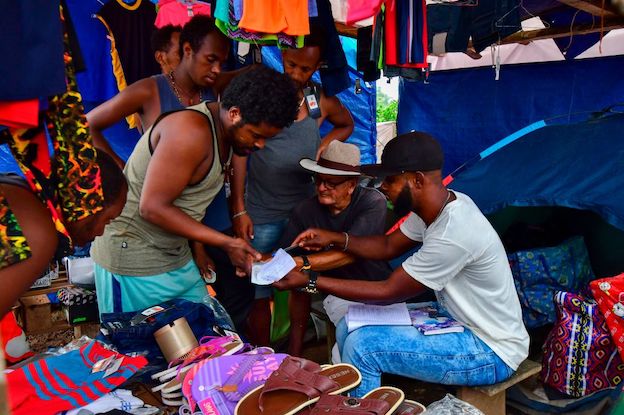The year 2010 marks Argentina’s bicentennial. The moment provides an opportunity to reflect on certain aspects of our history as well as our future challenges. One of the most important is the role of entrepreneurship, or more specifically, new entrepreneurship and young entrepreneurs.
Social and economic factors in Argentina, such as territory, climate diversity, natural resources and the educational level of our population, set us apart from other Latin American countries and provide a solid foundation for sustainable development and growth. Many industries have been developed throughout Argentina’s history, including agribusiness, information technology, energy and nuclear power, metal and steel, metallurgy, extraction, chemicals, construction, design and tourism. Without a doubt, agribusiness is the industry with the most untapped potential. One of the most important sectors is the timber industry, where I work.
The Food and Agriculture Organization of the United Nations (FAO), estimates the world population will be 8 billion in 2030. Demand for forest-based products is projected to rise from 1.8 to 2.7 million cubic meters (2.4 to 3.5 million cubic yards) this year alone. In order to meet the growing demand, 900 million additional cubic meters (1.17 billion cubic yards) of timber are needed.
The potential of Argentina’s timber industry is apparent. Out of 20 million cubic meters (26 million cubic yards) of wood stock, only 10 million are harvested for timber. Ninety-five percent of Argentina’s timber comes from planted forests, and 1.2 million out of an available 5 million hectares (2.7 of 12.4 million acres) are planted. The greatest challenge for my sector is stimulating production in order to take advantage of the world’s growing demand for timber. The entrepreneurs involved in this venture must work to create conditions that will satisfy the needs of a demanding market while also adhering to the highest available standards, like the Criteria and Indicators for the Conservation and Sustainable Management from the Montreal Process.
The timber industry is strategically important at an economic and social level. Worldwide it helps to alleviate poverty; 1.2 million people depend on it for work. In Argentina alone, timber employs half a million people. Its impact on climate change is no less important since growing trees in a sustainable manner drains carbon from the atmosphere, fights desertification and preserves biodiversity. The industry’s forest product requires relatively low energy consumption, is carbon-neutral, and is a renewable and recyclable raw material. Another important aspect of the timber industry is that it offers an alternative source of renewable energy by producing renewable biomass, something that is more significant than ever given the world’s energy problems. For this reason, I believe it is possible to create a productive timber industry in Argentina over the long run, one that is capable of operating within the principles of social responsibility and sustainable development.
To achieve this and also succeed in other sectors, entrepreneurs from the new generation must work to establish a leadership with the objective of creating a social, economic, environmental and political commitment capable of leading Argentina to a more inclusive form of capitalism.
While our generational interests and expectations do not differ in essence from those of previous generations, we do have a greater awareness of the need to achieve sustainable development. Our expectations are oriented not only toward gaining employment, but also toward being sensitive to the environment and the needs of our communities.
The integrated world in which we operate as entrepreneurs has different challenges and hurdles than those of previous generations mainly due to globalization and technology. In our region, Mercosur is the most important model of economic integration. It aims to increase the flow of goods, services and products between the member states by eliminating duties and non-tariff restrictions, circulating merchandise, establishing an external common tariff, adopting common commercial policies with regards to third countries, and coordinating common sectoral and macroeconomic policies.
In this context, I believe that Argentina should create an economic and social regional forum with its neighboring countries, Brazil in particular. An alliance with Brazil within Mercosur and a South American union should be the axis that allows these countries to cooperate in international organizations and forums. In addition to the joint activities that Argentina and Brazil have already developed, such as nuclear power, satellite research for monitoring the environment, control of natural resources, and biotechnology for food and drugs, joint industrial ventures should be added, in the field of energy, for example. Both countries could also tap into the resources of the South Atlantic and develop their fishing industries cooperatively.
Domestically, public policy should be recognized on three levels: public, private and mixed, characterized by a clear territorial decentralization. Presently, 76 percent of our industries are concentrated in metropolitan areas. In Argentine capitalism, the promotion of industry must be aimed at strengthening regional economies, adding value and greater competitiveness. This will lead to a multiplying effect that will boost the economy.
Politically speaking, in Latin America in general and Argentina in particular the twentieth century was marred by serious interruptions in democracy. Today, the greatest generational achievement is the fact that we have had 25 years of uninterrupted democracy. The challenge that lies ahead is to work on strengthening institutions so that we may be true to the supreme law of our Constitution to better defend republican values and federalism.
In conclusion, one of the most significant achievements of the business sector has been the development of private business. However, here in Argentina we are still struggling to take advantage of the country’s full economic potential. To reach it, the new entrepreneurs must work at a public and private level to boost diverse sectoral policies, and establish the necessary conditions to reach sustainable development, such as an adequate legal and institutional framework, infrastructure, education and training, financing, promotion of investigation and innovation. This is without a doubt the only valid way to attract national and foreign investment and capital.







